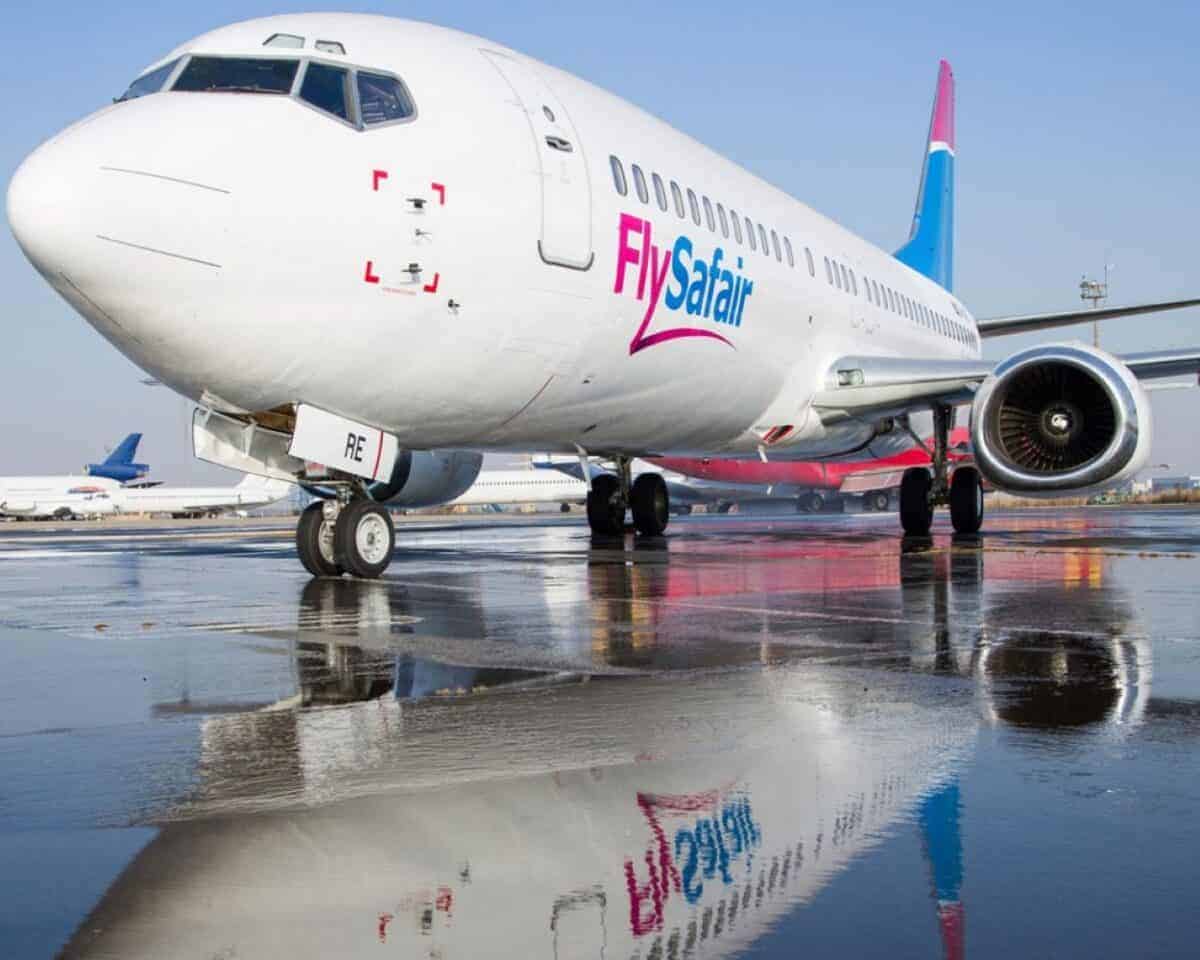Audited records reveal FlySafair transferred millions abroad while denying workers cost-of-living increases.

Amid a pilot strike due to protracted wage negotiations and along with domestic and international licensing compliance deadlines, it is now alleged FlySafair, South Africa’s only budget air carrier, transferred substantial cash to its shareholders in Ireland.
A source said more than R1.31 billion was transferred abroad at the tail-end of the Covid pandemic, during a time when FlySafair reportedly told employees it could not afford basic cost-of-living salary increases.
The allegations are supported by the audited financial statements of Safair Aviation (Ireland) DAC, a holding company with no employees and minimal expenses, which reports to parent company ASL Aviation Holdings.
FlySafair reportedly transferred over R1.3bn offshore
According to the statements, Safair Aviation (Ireland) DAC received $54.5 million (about R956 million) in 2022, and a further $20.3 million in early 2023, from its South African subsidiary, Safair Holdings (Pty) Limited – the parent company of FlySafair.
In total, over $74.8 million was transferred abroad in just over a year.
FlySafair did not respond to requests for financial data covering earlier or later periods.
ALSO READ: FlySafair cancels more than 20 flights, offers refunds as pilots’ strike continues [VIDEO]
“This is not just executive hypocrisy; it is a textbook case of pandemic profiteering,” the source said.
“Employees were told to sacrifice because the company was apparently struggling, yet foreign shareholders were enriched with sums that dwarf what would have been needed to treat staff fairly.”
At the time the funds were expatriated, pilots and other staff faced wage freezes and reduced benefits.
Pilots, staff faced wage freezes
Relating the cash exit, another source said that a 10% salary increase for pilots would, in contrast, have cost about R45 million a year.
“That is less than 4% of what was sent offshore in one financial period. There was no real inability to pay, just a decision to prioritise foreign shareholders over the people who keep the airline running,” said the source.
Earlier this year, FlySafair came under fire after questions about its ownership structure and control led to a sanction by the Domestic and International Air Licensing Councils.
ALSO READ: Here’s how much FlySafair pilots are earning as increase offer rejected
It was found the airline was controlled by its Irish parent and thus in violation of the law.
Requirements in South Africa demand that 75% control of an airline remains in local hands, while the balance may be held internationally.
Aviation attorney and private pilot Emile Myburgh said, despite allegations from the source, this is not directly a profit issue, but it raises other questions.
Not directly a profit issue
“It certainly raises questions when significant profits go offshore. The fact that such significant sums go abroad is at least a red flag,” Myburgh said.
FlySafair has long argued that its ownership meets the legal thresholds, but Myburgh said regulators look beyond the paperwork.
“The law looks at the de facto, real situation,” he said.
ALSO READ: FlySafair pilots down tools, travellers warned of delays and cancellations
“It doesn’t matter how you structure the 75% South African shareholding. If the tests laid down by the Air Services Licensing Act and Companies Act show that control lies with a non-South African resident, then it doesn’t matter what the de jure situation is.”
Myburgh said South African aviation law does not tolerate simulation.
“Even if the airline shows 75% local shareholding on paper, if the 25% foreign shareholder effectively controls the airline through voting rights or board appointments, then the airline is in breach of the Act,” he said.
Near all of FlySafair controlled outside SA’s borders
The Citizen previously reported that near all of FlySafair is controlled outside South Africa’s borders.
The department of transport confirmed the carrier has appealed the domestic ruling but not the international sanction. FlySafair has about six months left to correct its control structures.
Businessman Robert Gumede was purportedly approached to invest in the company but, according to sources, the deal fell flat. Gumede’s office did not respond to questions from The Citizen at the time of publication.
ALSO READ: Pilots at this airline may strike starting next week
A department of transport spokesperson responded to questions about the dividend export, FlySafair’s licensing status and progress of same.
“These matters are part of the agenda to be discussed in the upcoming meetings of both councils. The outcomes of the meetings will be made available in the next coming two to three weeks.”
Myburgh said current wage negotiations between FlySafair’s pilot body and the company could be impacted by the offshore dividend evidence.
Wage negotiation could be impacted by offshore dividend evidence
“Huge dividends being paid to shareholders while employees are told to take the financial brunt of the risk has often been used, successfully, against employers who plead poverty while living the good life during wage negotiations,” he said.
FlySafair did not acknowledge or respond to questions from The Citizen.
The carrier failed to respond to questions over the large dividends paid to its parent via a third party, how it justified these in the light of imposing wage austerity, or provided any additional annual financial statements that showed or didn’t show similar activity in other years.
ALSO READ: Planning to Fly? Acsa warns of flight delays at OR Tambo International Airport
The airline also avoided responding to questions about local investment, shareholding, the status of acquiring a B-BBEE partner and licensing council sanctions.






